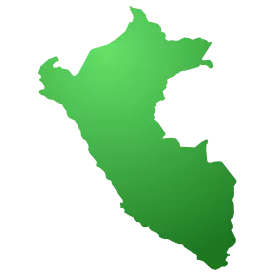Peru


Discover Peru
Currency
Sol
Capital
Lima
Languages Spoken
Spanish
Fun Foods
Pollo a la Brasa, Anticuchos, Ceviche, Churros, Picarones, and Alfajores. For drinks, try Inca Kola and Aguas Frescas.
Peru, a South American nation of rich cultural heritage, boasts a history that spans thousands of years. The region's ancient civilizations, such as the Caral-Supe and Nazca, laid the foundation for remarkable cultural achievements, including intricate textiles, massive geoglyphs, and advanced agricultural practices.
However, it was the Inca Empire that left an indelible mark on Peru's history. Flourishing in the 15th and early 16th centuries, the Inca constructed impressive stone cities like Machu Picchu and developed an intricate network of roads connecting their vast domain.
In 1532, Spanish conquistador Francisco Pizarro arrived in Peru, leading to the downfall of the Inca Empire. The Spanish colonization left a complex legacy, blending indigenous traditions with European influences, including language, religion, and architecture.
The 19th century brought forth a series of struggles for independence, leading to Peru's eventual freedom from Spanish rule in 1824. However, political instability persisted as the country navigated between periods of dictatorship and democratic governance.
In the 20th century, Peru faced economic challenges and social inequalities, often exacerbated by political turmoil. The latter part of the century saw a resurgence in indigenous movements and efforts to address historic injustices.
Today, Peru is celebrated for its rich cultural mosaic, breathtaking landscapes, and culinary prowess. The country's history, from ancient civilizations to colonial conquest and modern aspirations, continues to shape its identity as a nation on a path of progress and self-discovery.
Source ChatGPT
Experience Points


XP EARNED OUT OF 0
Points Breakdown
| Sticker Collected | 0 XP |
| Card Collected | 0 XP |
| Bonuses | 0 XP |
| Total | 0 XP |
Your travel history

First Visit
---
Last Visit
---
You've logged 0 visits.


